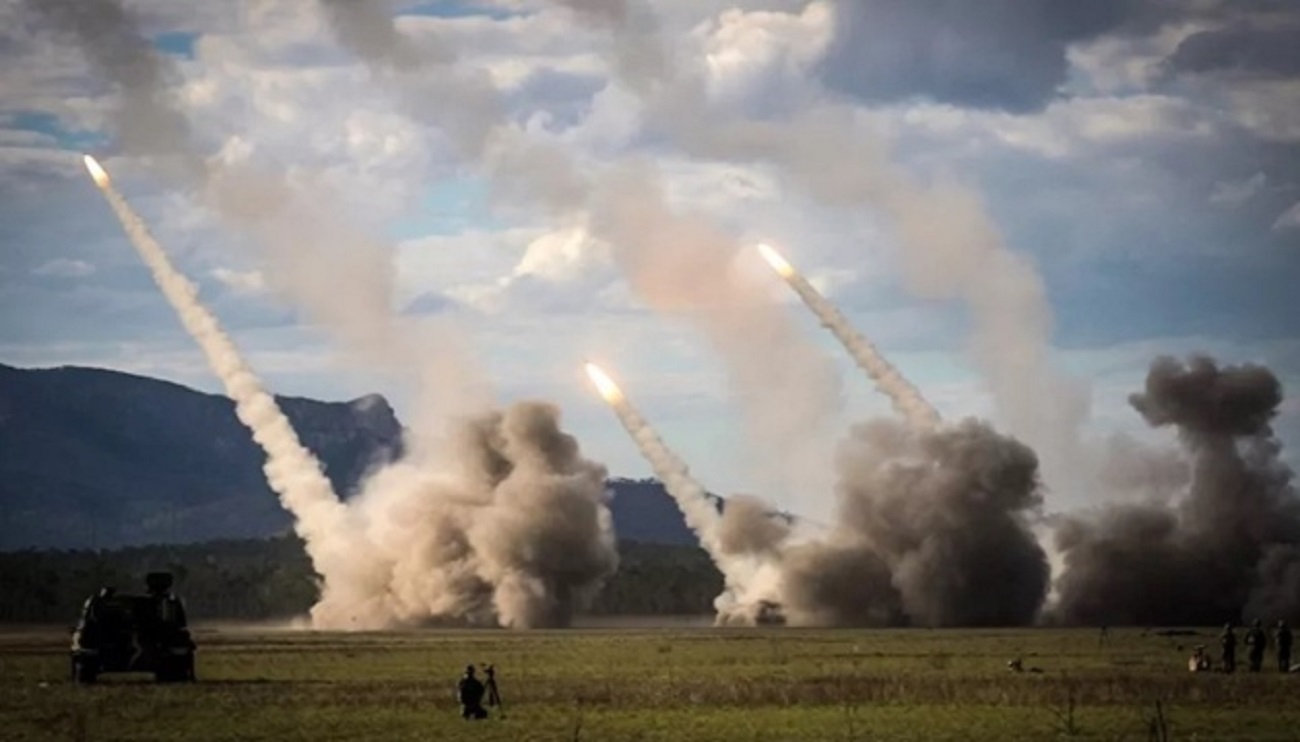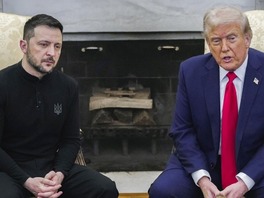For a long time, American military aid to Ukraine came with the condition of refraining from striking Russian territory. Ukraine could only use domestically produced weapons for such purposes. And it's been highly effective. Evidence of this includes burning Russian refineries and military factories. However, we still lack enough of this weaponry to deter the aggressor. Yet, in recent days, there's been talk of lifting the ban. Investigating what influences this and what prospects lie ahead for Ukraine is journalist Roman Kot from Apostrophe.
The motives of the US regarding the ban are evident. Among a number of American politicians and some experts, there are still concerns that the conflict with Russia will escalate to a new level. Partially because of this, Ukraine didn't receive serious weaponry immediately after the Russian invasion; everything happened very slowly. When the White House cautiously crossed one Kremlin "red line" after another and saw no Russian response, certain conclusions were drawn. However, the fear still lingers. Especially as the Kremlin periodically rattles its nuclear arsenal.
On the other hand, removing the "red lines" in the minds of our allies is aided by successful strikes on Russian targets using Ukrainian weaponry, to which the Kremlin, once again, did not respond. But this is more of a backdrop against which shifts towards strikes on Russia are emerging.
The reasons lie within the US itself. Moreover, pressure on Biden is coming from two directions.
Changes within the team
The first direction comes from within the administration. Shifts began after US Secretary of State Antony Blinken's visit to Kyiv. It coincided with the Russian advance in the Kharkiv region. According to Apostrophe, officials in Ukraine attempted to explain to the Secretary of State that the attack on Kharkiv could have been halted or at least reduced in scale if there had been the ability to strike Russian troop concentrations across the border.
In response, the head of the State Department only made an extremely vague statement, which the media interpreted in various ways. However, the ban was still not lifted.
As Antony Blinken concluded his trip to Ukraine, a Ukrainian delegation of five Ukrainian MPs led by David Arakhamia departed for the US. During the visit, the lawmakers somewhat ‘pushed the envelope,’ even hinting at the possible loss of major cities if the American ban was not lifted.
These repeated attempts from different angles are gradually yielding results. Shortly after returning to Washington, it became known that a certain format for lifting the ban is indeed being prepared. Officials familiar with the discussions revealed this to The New York Times. According to the publication, the proposal is currently in the formation stage and has not yet been formally presented to Biden. Among other things, this idea could also be used in the presidential elections.
The efforts of the Ukrainian government are supplemented by the example set by our partners.
As always, London leads the way here. In early May, the UK Foreign Secretary David Cameron visited Kyiv, stating that his country would not stand in the way of Ukraine using British weaponry to strike Russia.
Similar discussions have also arisen in France, especially against the backdrop of President Emmanuel Macron's heightened rhetoric. For instance, the head of the parliamentary committee on foreign affairs, Jean-Louis Bourlanges, wrote a letter to the French leadership urging them to abandon ‘restraint and make a decision,’ following the example of the United Kingdom, which allowed Ukrainian forces to use its weapons against Russia.
Illustrative is also the statement by NATO Secretary General Jens Stoltenberg, who, in an interview with The Economist, stated that the defense of Ukraine should include strikes on targets within Russian territory.
‘The time has come for allies to consider whether they should lift some of the restrictions they have put on the use of weapons they have donated to Ukraine,’ said Stoltenberg. ‘Especially now when a lot of the fighting is going on in Kharkiv, close to the border, to deny Ukraine the possibility of using these weapons against legitimate military targets on Russian territory makes it very hard for them to defend themselves.’
Thus, it can be argued that there is a certain group of politicians (and states) demonstrating to the White House their readiness to lift further "red lines."
The factor of elections
Another direction of pressure on Biden comes from Republicans. Supporters of lifting the ban exist in both parties. For instance, on May 20th, a group of 13 U.S. congressmen from both parties, seven Democrats and six Republicans, signed a letter to Secretary of Defense Lloyd Austin, urging permission for Ukraine to attack targets in Russia using American weapons, ‘under certain circumstances.’
In the public arena of the U.S., messages advocating for lifting the ban mostly come from Republican congressmen. Meanwhile, members of the Democratic Party express themselves more cautiously and in line with Biden's position.
Surprisingly, among those who have spoken about allowing strikes on Russian territory is the Speaker of the U.S. House of Representatives, Mike Johnson. This is the same person who blocked the vote on aid for Ukraine for several months.
‘I think Ukraine should be allowed to wage war as they see fit. They should be able to push back. And I think we're trying to micromanage by our efforts, and that's not good policy for us,’ he responded to Voice of America's inquiry.
At least in the case of Republicans, the change in rhetoric is not accidental. The Republican Party coalesces around Trump. The ban issue in the context of elections is promising, as it allows criticism of Democrats and Joe Biden personally for indecision.
Trump himself has not yet commented on the ban. Therefore, for now, it may be about testing public opinion. So, during the election campaign, this issue will certainly arise. The question is whether Ukraine will be able to capitalize on the circumstances to its advantage.






